#John Hoeven
Explore tagged Tumblr posts
Text
North Dakota Governor DILFs




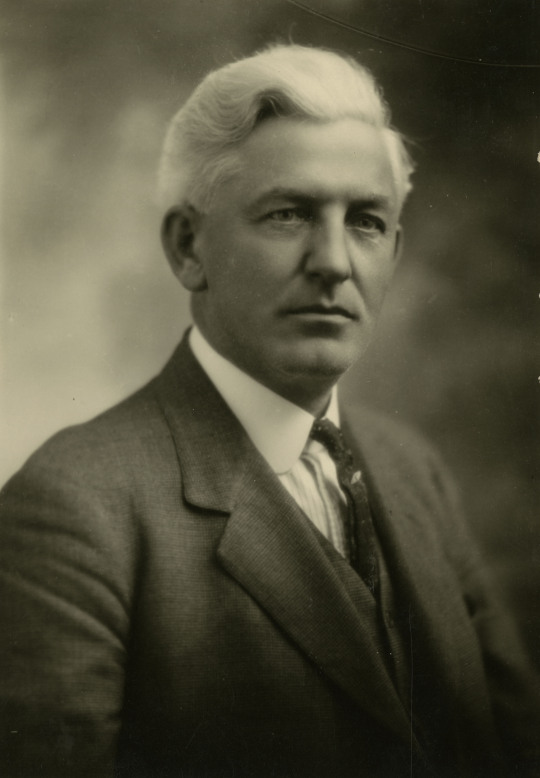


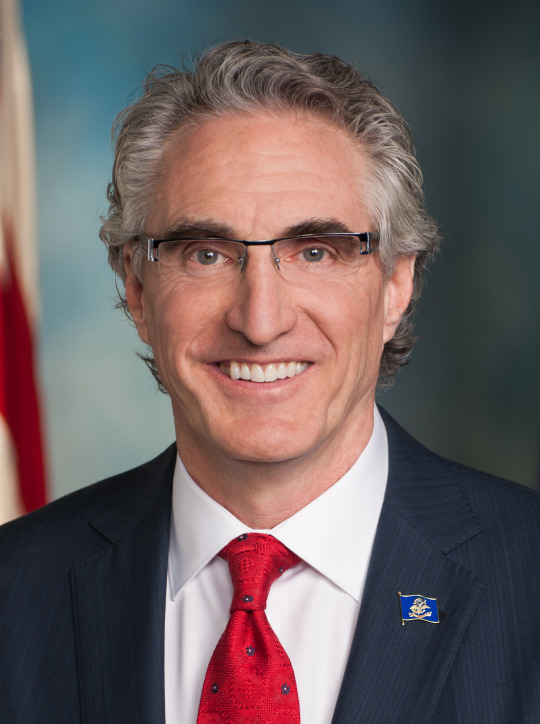


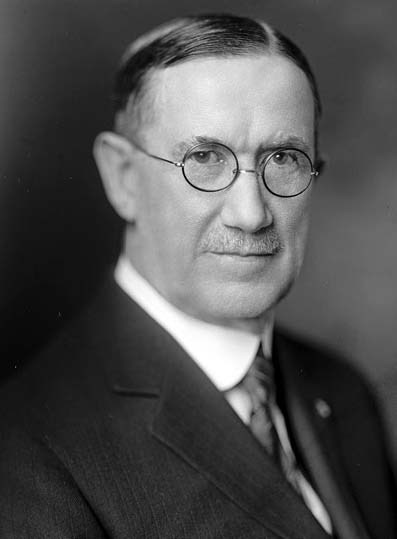
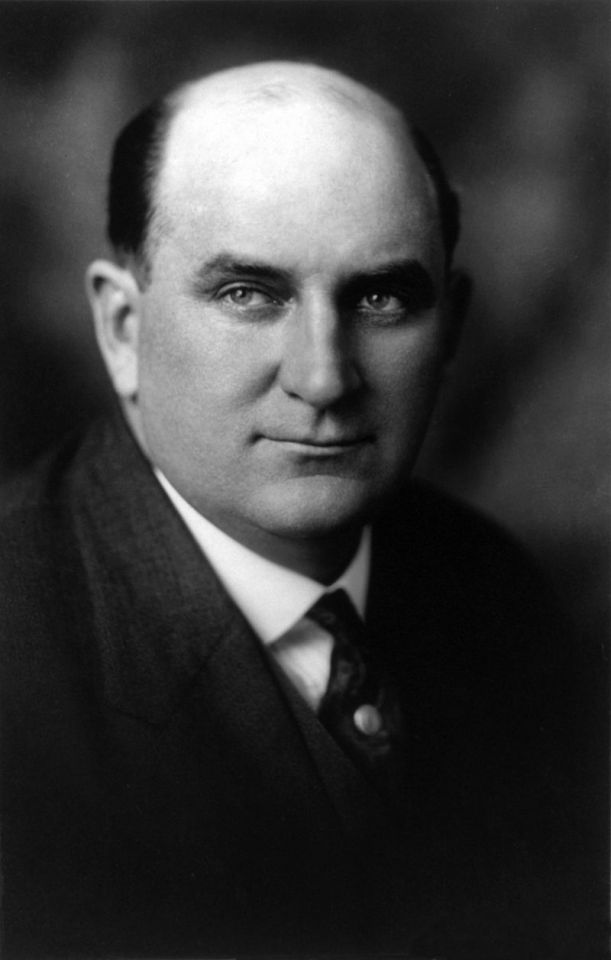


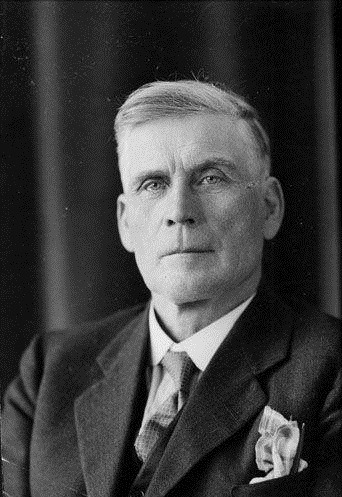


Fred G. Aandahl, George A. Sinner, Arthur A. Link, Norman Brunsdale, Arthur G. Sorlie, Jack Dalrymple, Ed Schafer, Doug Burgum, Allen I. Olson, John Moses, L. B. Hanna, Lynn Frazier, Ole H. Olson, John Hoeven, Walter Welford, William L. Guy, William Langer
#Fred G. Aandahl#George A. Sinner#Arthur A. Link#Norman Brunsdale#Arthur G. Sorlie#Jack Dalrymple#Ed Schafer#Doug Burgum#Allen I. Olson#John Moses#L. B. Hanna#Lynn Frazier#Ole H. Olson#John Hoeven#Walter Welford#William L. Guy#William Langer#GovernorDILFs
13 notes
·
View notes
Text
FROM PUBLIC CITIZEN
On Friday night, 50 United States senators — all of them Republicans — voted to put our nation’s security in the hands of a man who is laughably unqualified.
Except it could not be less funny.
With a tie-breaking vote from Vice President JD Vance, Pete Hegseth will now be Secretary of Defense.
Pete Hegseth isn’t qualified to be shift leader at a Dairy Queen (nothing against Dairy Queen). Putting him in charge of the entire United States military is a perversion — and every one of the 50 senators who voted for him knows it.
So why did they do it?
Because they were afraid that if they did the right thing and rejected Hegseth, Donald Trump would back someone else in their next election, and assistant president Elon Musk would spend millions to defeat them.
That’s why Trump defended his nominee so aggressively once news reports indicated how horrible Hegseth’s record is. It was a test. “Look how much they fear me.” “Look how willing they are to prostrate themselves at my feet.” “Look what I’ve turned them into.”
It’s really quite pathetic how craven and insecure they are.
Especially considering that even if they did lose their seats, ex-senators do pretty well. There are cushy positions on corporate boards or as high-paid lobbyists. There are deals to be had for books, podcasts, and speaking gigs. There are roles as pundits and hosts on Fox “News.” There are shady right-wing nonprofits and “think tanks” to run. There are car dealerships and cryptocurrencies to profit from. And on and on and on.
But no, these 50 senators were so afraid of Trump and so addicted to the illusion of political power (we say “illusion” because in reality they have forsaken any actual power in abject fealty to Trump) that they were willing to put Hegseth in charge of the $900 billion Pentagon, its 3 million employees, and all its warfighting capacity.
This is a man who has shown himself unable to run a small nonprofit. A man about whom there are credible reports of excessive drinking and out-of-control behavior. And a man against whom there are multiple allegations of sexual assault and domestic violence.
This is also a man who refused in his confirmation hearing to renounce the use of torture. A man who at his hearing was unaware of a major international alliance. And a man who has argued that women should not serve in combat roles.
Let’s not forget that for generations, it is Republicans who have held themselves out as the party that supports the military and is “strong on defense.”
In case you think your senator would never jeopardize America’s national security, here are the 50 Republican senators who just sold out our troops, our veterans, and our country:
Jim Banks, Indiana John Barrasso, Wyoming Marsha Blackburn, Tennessee John Boozman, Arkansas Katie Britt, Alabama Ted Budd, North Carolina Shelley Capito, West Virginia Bill Cassidy, Louisiana John Cornyn, Texas Tom Cotton, Arkansas Kevin Cramer, North Dakota Michael Crapo, Idaho Ted Cruz, Texas John Curtis, Utah Steve Daines, Montana Joni Ernst, Iowa Deb Fischer, Nebraska Lindsey Graham, South Carolina Charles Grassley, Iowa Bill Hagerty, Tennessee Joshua Hawley, Missouri John Hoeven, North Dakota Jon Husted, Ohio Cindy Hyde-Smith, Mississippi Ron Johnson, Wisconsin Jim Justice, West Virginia John Kennedy, Louisiana James Lankford, Oklahoma Mike Lee, Utah Cynthia Lummis, Wyoming Roger Marshall, Kansas Dave McCormick, Pennsylvania Ashley Moody, Florida Jerry Moran, Kansas Bernie Moreno, Ohio Markwayne Mullin, Oklahoma Rand Paul, Kentucky Pete Ricketts, Nebraska James Risch, Idaho Mike Rounds, South Dakota Eric Schmitt, Missouri Rick Scott, Florida Tim Scott, South Carolina Tim Sheehy, Montana Dan Sullivan, Alaska John Thune, South Dakota Thom Tillis, North Carolina Tommy Tuberville, Alabama Roger Wicker, Mississippi Todd Young, Indiana
(Here are the three Republican senators who did not vote for the charlatan: Susan Collins, Maine; Mitch McConnell, Kentucky; Lisa Murkowski, Alaska.)
If you are feeling angry and/or fearful about what it will mean to have someone as devastatingly unqualified and dangerous as Pete Hegseth running the Department of Defense, join Public Citizen in a message to the 50 senators who just voted for exactly that.
Those who serve in uniform, our nation’s veterans, the hundreds of thousands of civilians who work in the military, and — most crucially of all — every single American deserve better (far better) than Pete Hegseth. You have put us all in harm’s way for no reason other than your own cowardice in the face of Donald Trump. Shame on you.
Click to add your name now.
Thanks for taking action.
For progress,
- Robert Weissman & Lisa Gilbert, Co-Presidents of Public Citizen
57 notes
·
View notes
Text
youtube
The Butthole Surfers live at Paard van Troje, The Hague, Netherlands (Holland) May 7th 1986. Filmed By Do Baks & Marco Van Der Hoeven
𝐒𝐄𝐓𝐋𝐈𝐒𝐓 𝐖/𝐓𝐈𝐌𝐄𝐒𝐓𝐀𝐌𝐏𝐒:
0:00 Graveyard
1:38 To Parter
5:11 Tornados
7:54 Sweat Loaf
11:17 John W. Smoke
17:38 Mark Says Alright
21:40 Creep in the Cellar
23:53 Gary Floyd
25:41 The Shah Sleeps in Lee Harvey's Grave
27:46 Moving to Florida
31:38 Cherub
38:39 Suicide [𝘤𝘶𝘵𝘴 𝘰𝘧𝘧]
39:09 [𝘵𝘦𝘤𝘩𝘯𝘪𝘤𝘢𝘭 𝘥𝘪𝘧𝘧𝘪𝘤𝘶𝘭𝘵𝘪𝘦𝘴]
40:00 Suicide [𝘤𝘰𝘯𝘵.]
40:47 Wreck of the Edmund Fitzgerald [𝘸/𝘱𝘺𝘳𝘰𝘵𝘦𝘤𝘩𝘯𝘪𝘤𝘴]
46:55 100 Million
50:21 Revenge of Anus Presley
53:36 PSY
5 notes
·
View notes
Text
(AP) — President-elect Donald Trump is preparing more than 100 executive orders starting Day One of the new White House, in what amounts to a shock-and-awe campaign on border security, deportations and a rush of other policy priorities.
Trump told Republican senators about the onslaught ahead during a private meeting on Capitol Hill. Many of the actions are expected to launch on Inauguration Day, Jan. 20, when he takes office. Trump top adviser Stephen Miller outlined for the GOP senators the border security and immigration enforcement measures that are likely to launch soonest. Axios first reported on Trump and his team’s presentation.
“There will be a substantial number,” said Sen. John Hoeven, R-N.D.
Allies of the president-elect have been preparing a stack of executive orders that Trump could sign quickly on a wide range of topics – from the U.S.-Mexico border clampdown to energy development to federal Schedule F workforce rules, school gender policies and vaccine mandates, among other day-one promises made during his campaign.
1 note
·
View note
Text
23 Republican Senators & 124 Congressmen signed an amicus brief to the Supreme Court asking for a 50 state ban on mifepristone, a drug safer than tylenol that is standard treatment for abortion & miscarriages, "due to safety concerns". The brief DARES to argue that banning the life saving drug would save women from 'reproductive control'. (x) These 147 people would rather have women die of sepsis than let women control their own bodies. If your representatives are on this list, call them and tell their office you will be voting against them in the next election because they asked SCOTUS to throw the US medical drug system into chaos at the cost of American lives.
United States Senate
Lead Senator: Cindy Hyde-Smith (MS) John Barrasso (WY) Mike Braun (IN) Katie Britt (AL) Ted Budd (NC) Bill Cassidy (LA) Kevin Cramer (ND) Mike Crapo (ID) Ted Cruz (TX) Steve Daines (MT) Josh Hawley (MO) John Hoeven (ND) James Lankford (OK) Mike Lee (UT) Cynthia Lummis (WY) Roger Marshall (KS) Markwayne Mullin (OK) James Risch (ID) Marco Rubio (FL) Rich Scott (FL) John Thune (SD) Tommy Tuberville (AL) Roger Wicker (MS)
United States House of Representatives
Lead Representative: August Pfluger (TX–11) Robert Aderholt (AL–04) Mark Alford (MO–04) Rick Allen (GA–12) Jodey Arrington (TX–19) Brian Babin (TX–36) Troy Balderson (OH–12) Jim Banks (IN–03) Aaron Bean (FL–04) Cliff Bentz (OR–02) Jack Bergman (MI–01) Andy Biggs (AZ–05) Gus Bilirakis (FL–12) Dan Bishop (NC��08) Lauren Boebert (CO–03) Mike Bost (IL–12) Josh Brecheen (OK–02) Ken Buck (CO–04) Tim Burchett (TN–02) Michael Burgess, M.D. (TX–26) Eric Burlison (MO–07) Kat Cammack (FL–03) Mike Carey (OH–15) Jerry Carl (AL–01) Earl L. “Buddy” Carter (GA–01) John Carter (TX–31) Ben Cline (VA–06) Michael Cloud (TX–27) Andrew Clyde (GA–09) Mike Collins (GA–10) Elijah Crane (AZ–02) Eric A. “Rick” Crawford (AR–01) John Curtis (UT–03) Warren Davidson (OH–08) Monica De La Cruz (TX–15) Jeff Duncan (SC–03) Jake Ellzey (TX–06) Ron Estes (KS–04) Mike Ezell (MS–04) Pat Fallon (TX–04) Randy Feenstra (IA–04) Brad Finstad (MN–01) Michelle Fischbach (MN–07) Scott Fitzgerald (WI–05) Mike Flood (NE–01) Virginia Foxx (NC–05) Scott Franklin (FL–18) Russell Fry (SC–07) Russ Fulcher (ID–01) Tony Gonzales (TX–23) Bob Good (VA–05) Paul Gosar (AZ–09) Garret Graves (LA–06) Mark Green (TN–07) Marjorie Taylor Greene (GA–14) H. Morgan Griffith (VA–09) Glenn Grothman (WI–06) Michael Guest (MS–03) Harriet Hageman (WY) Andy Harris, M.D. (MD–01) Diana Harshbarger (TN–01) Kevin Hern (OK–01) Clay Higgins (LA–03) Ashley Hinson (IA–02) Erin Houchin (IN–02) Richard Hudson (NC–09) Bill Huizenga (MI–04) Bill Johnson (OH–06) Mike Johnson (LA–04) Jim Jordan (OH–04) Mike Kelly (PA–16) Trent Kelly (MS–01) Doug LaMalfa (CA–01) Doug Lamborn (CO–05) Nicholas Langworthy (NY–23) Jake LaTurner (KS–02) Debbie Lesko (AZ–08) Barry Loudermilk (GA–11) Blaine Luetkemeyer (MO–03) Tracey Mann (KS–01) Lisa McClain (MI–09) Dr. Rich McCormick (GA–06) Patrick McHenry (NC–10) Carol Miller (WV–01) Mary Miller (IL–15) Max Miller (OH–07) Cory Mills (FL–07) John Moolenar (MI–02) Alex X. Mooney (WV–02) Barry Moore (AL–02) Blake Moore (UT–01) Gregory F. Murphy, M.D. (NC–03) Troy Nehls (TX–22) Ralph Norman (SC–05) Andy Ogles (TN–05) Gary Palmer (AL–06) Bill Posey (FL–08) Guy Reschenthaler (PA–14) Mike Rogers (AL–03) John Rose (TN–06) Matthew Rosendale, Sr. (MT–02) David Rouzer (NC–07) Steve Scalise (LA–01) Keith Self (TX–03) Pete Sessions (TX–17) Adrian Smith (NE–03) Christopher H. Smith (NJ–04) Lloyd Smucker (PA–11) Pete Stauber (MN–08) Elise Stefanik (NY–21) Dale Strong (AL–05) Claudia Tenney (NY–24) Glenn Thompson (PA–15) William Timmons, IV (SC–04) Beth Van Duyne (TX–24) Tim Walberg (MI–05) Michael Waltz (FL–05) Randy Weber, Sr. (TX–14) Daniel Webster (FL–11) Brad R. Wenstrup, D.P.M. (OH–02) Bruce Westerman (AR–04) Roger Williams (TX–25) Joe Wilson (SC–02) Rudy Yakym (IN–02)
If your representatives are on this list, call them and tell their office you will be voting against them in the next election because they asked SCOTUS to throw the US medical drug system into chaos at the cost of American lives.
Help to patients who have to cross state lines to get medical care by donating to your local abortion fund here. (x)
#scotus#abortionpill#state of the uterus#abortion rights are human rights#us politics#miscarriage#vote blue#nnaf#yellowhammer
25 notes
·
View notes
Text
As the Israel-Hamas war escalated this week, WIRED looked at the conditions that contributed to Israel's intelligence failures ahead of Hamas' initial attack last Saturday, as well as the hacktivism and digital mayhem that has subsequently sprung up around the kinetic war. The situation has led to a torrent of misinformation across global discourse, particularly on the social media platform X (formerly Twitter), where fake photos, old videos, and video game footage have exploded on an unprecedented scale.
X’s Trust and Safety team claims it has been working to address the situation, but company CEO Elon Musk has been “posting through it,” sharing conspiracies and engaging with QAnon discourse on the platform. The chaotic situation on X has been difficult for the average user to keep up with. In one case, a graphic Hamas video that Donald Trump Jr. shared on the platform actually turned out to be legitimate, even though it seemed at first look like it might have been part of the broader deluge of misinformation. And beyond just X, rumors of a “Global Day of Jihad” on Friday unleashed a dangerous wave of disinformation across digital platforms—one that threatened to cross into real-world violence.
With the trial of FTX founder Sam Bankman-Fried in full swing this week, WIRED took a deep look at the day someone stole hundreds of millions of dollars from the ill-fated cryptocurrency exchange as it was declaring bankruptcy. And new evidence released by researchers this week indicates that the stolen FTX funds went through a chain of intermediaries that eventually led to Russia-linked money launderers.
As chaos in the United States House of Representatives continues over Republicans' inability to deal with far-right hardliners and elect a new speaker, WIRED reported that Republican Party leaders have imposed cell phone bans in an attempt to keep backroom dealmaking under wraps. The United Nations' top internet governance body may host its next two annual meetings in countries known for repressive digital policies and abusive information control, which risks normalizing internet censorship. And white supremacist “active clubs” are gaining traction in part through communication on the messaging app Telegram.
Meanwhile, Google announced this week that it will make the more secure password replacement known as passkeys the default login option for its personal account holders as part of the company's efforts to promote adoption of the technology. And a new internet protocol vulnerability known as “HTTP/2 Rapid Reset” impacts virtually every web server around the world and will take years to stamp out, exposing some sites and digital services to denial of service attacks long-term.
And there's more. Each week we round up the security and privacy news that we didn’t cover in depth ourselves. Click the headlines to read the full stories. And stay safe out there.
Vietnam Used Predator Spyware to Target US Congress
Notorious high-end commercial spyware like Pegasus and Predator has been used over the past decade to target human rights activists, protesters, and journalists. But a foreign nation using it to target the smartphones of US members of Congress represents a rare and brazen new appearance of those notorious tools. On Monday The Washington Post, along with a consortium of more than a dozen international media outlets, revealed that the Vietnamese government used that Predator spyware, distributed by the surveillance firms Cytrox and Intellexa, to target at least four members of Congress—representative Michael McCaul and senators Chris Murphy, John Hoeven, and Gary Peters—as well as Asia-focused experts at US think tanks and several journalists that include CNN’s lead national security reporter, Jim Sciutto.
In the hacking campaign, those individuals were targeted in replies on X (formerly known as Twitter) that included links to websites that would have infected their iOS or Android phones with the Predator spyware. That tactic appears to have been both reckless and unsuccessful: Anyone else who saw the tweets and clicked on the link would have been infected too, and the highly public nature of that infection attempt helped researchers and reporters to analyze the scope and targeting of the campaign. The attempted espionage was timed to US government meetings with Vietnamese officials, and it appears to have been aimed at understanding US intentions in the meeting, particularly related to relations with China.
The media consortium, along with security researchers from Amnesty International and Google’s Threat Analysis Group, were able to show Vietnam’s connection to the Predator hacking campaign through documents they obtained that detail the Vietnamese government’s contract with Intellexa in 2020, and later an extension of the deal to allow the use of the Predator software. The internal documents went so far as to capture the response of Intellexa’s founder, Israeli former military hacker turned entrepreneur Tal Dilian, when the deal was announced: “Wooow!!!!” Vietnam’s government would later target French officials with Predator before this year’s campaign targeting US congressmen.
Hamas Raised Millions in Crypto Ahead of Attacks
Despite efforts by Israel and other nations to cut off funding to Hamas in recent years, the group raised millions of dollars worth of cryptocurrency before the past weekend’s attack that killed more than a thousand Israelis. An analysis by The Wall Street Journal found that Hamas, Palestinian Islamic Jihad, and Hezbollah had collectively raised hundreds of millions in crypto over the past several years, with $41 million going to Hamas specifically. Given that the Journal learned of that funding in part through Israeli seizures of crypto accounts, however, it’s not clear how much of that money was frozen or seized versus how much might have actually been successfully laundered or liquidated by Hamas and other groups.
In response to the weekend’s attacks, the Israeli government and the world’s largest crypto exchange, Binance, both announced that a new round of Hamas crypto accounts had been frozen. Though crypto has helped Hamas and other groups move funds across borders, its traceability on blockchains has presented a challenge for designated terrorist groups. In 2021, for instance, Hamas asked its supporters to stop making donations via cryptocurrency, due to the ease of tracking those transactions and unmasking contributors.
Exxon Used Hacked Documents to Counter State Investigations
Last year, Reuters reporters Chris Bing and Raphael Satter published an investigation into Aviram Azari, an Israeli private investigator who is accused of using mercenary hackers to gather intelligence on the critics of major corporations involved in lawsuits against them.
Now, prosecutors in the Southern District of New York, where Azari has been convicted on criminal charges, have filed a sentencing memo that notes that activists’ communications stolen by Azari’s hackers were later used by Exxon in the company’s attempts to head off investigations and lawsuits by state attorneys general. The memo still doesn’t name Exxon as Azari’s client, but it implicitly suggests a link between the company and Azari: Prosecutors point in their memo to leaks of climate activists’ private emails to media, which were later cited by Exxon in their responses to state attorney generals as evidence of underhanded tactics by activists as they tried to prove that Exxon knew and covered up the role of fossil fuels in climate change. A Massachusetts lawsuit against Exxon that resulted from the state’s investigation is ongoing.
Magecart Cybercrime Crew Skims Cards With New 404 Trick
Internet giant Akamai warned this week that the infamous Magecart hacker crew, long focused on credit card fraud, has developed a clever new technique for spoofing credit card payment fields. The hackers managed to hide their malicious scripts in the 404 “page not found” error pages of ecommerce sites, then trigger those pages to load a spoofed payment field that impersonates a checkout page to steal credit card information. “The idea of manipulating the default 404 error page of a targeted website can offer Magecart actors various creative options for improved hiding and evasion,” warned Akamai researcher Roman Lvovsky. Akamai noted that the technique was used on the website of significant brands in the food and retail industries but declined to name them.
5 notes
·
View notes
Text
Alaska - Lisa Murkowski / Dan Sullivan
Hawaii - Brian Schatz / Mazie Hirono
Washington - Patty Murray / Maria Cantwell
Oregon - Ron Wyden / Jeff Merkley
California - Alex Padilla / Laphonza Butler
Arizona - Kirsten Sinema / Mark Kelly
Nevada - Catherine Cortez Masto / Jackie Rosen
New Mexico - / Ben Ray Lujan
Colorado - Michael Bennet / John Hickenlooper
Utah - Mike Lee / Mitt Romney
Wyoming - Jon Barasso / Cynthia Lummis
Idaho - / Jim Risch
Montana - Jon Tester / Steve Daines
North Dakota - John Hoeven / Kevin Cramer
South Dakota - John Thune / Mike Rounds
Nebraska - Deb Fischer / Pete Ricketts
Kansas - / Roger Marshall
Oklahoma - James Lankford /Markwayne Mullin
Texas - Jon Cornyn / Ted Cruz
Minnesota - Amy Klobuchar / Tina Smith
Iowa - Chuck Grassley / Joni Ernst
Missouri - Josh Hawley / Eric Schmitt
Arakansas - / Tom Cotton
Louisiana - / John Neely Kennedy
Tennessee - Marsha Blackburn / Ben Haggerty
North Carolina - Tom Tillis / Ted Budd
South Carolina - Lindsey Graham / Tim Scott
Kentucky - Mitch McConnell / Rand Paul
Alabama - Tommy Tubberville / Katie Britt
Mississippi - / Cynthia Hyde-Smith
Georgia - Jon Ossoff / Raphael Warnock
Florida - Marco Rubio / Rick Scott
Illinois - Dick Durbin / Taamy Duckworth
Michigan - Debbie Stabenow / Gary Peters
Wisconsin - Ron Johnson / Taamy Baldwin
Indiana - Todd Young / Mike Braun
Ohio - Sherrod Brown / J. D. Vance
Pennsylvania - Bob Casey, Jr. / John Fetterman
New York - Chuck Schumer / Kirsten Gillibrand
New Jersey - Bob Menendez / Cory Booker
Maryland - Ben Cardin / Chris van Hollen
Delaware - Tom Carper / Chris Coons
Virginia - Mark Warner / Tim Kaine
West Virginia - Joe Manchin / Shelly Moore Capito
Connecticut - / Chris Murphy
Rhode Island - Jack Reed / Sheldon Whitehouse
Massachusetts - Elizabeth Warren /
Vermont - Bernie Sanders / Peter Welch
New Hampshire - Jeanne Shaheen / Maggie Hassan
Maine - Susan Collins / Angus King
i have genuinely one of the weirdest skills to be able to brag about
#okay so apparently i can only remember 93#sorry i dong know everyone lol#the fucking guy from idaho bothers me tho#hes chief deputy whip republicans have a small leadership team i should know this cmon#ah well.#need to stop overestimatimg myself tbh
66K notes
·
View notes
Text
Trump Plans 100 Executive Orders Starting Day 1 on Border, Deportation and More

President-elect Donald Trump is preparing more than 100 executive orders starting day one of the new White House, in what amounts to a shock-and-awe campaign on border security, deportations and a rush of other policy priorities.
Trump told Republican senators about the onslaught ahead during a private meeting on Capitol Hill. Many of the actions are expected to launch on Inauguration Day, Jan. 20, when he takes office. Trump top adviser Stephen Miller outlined for the GOP senators the border security and immigration enforcement measures that are likely to launch soonest. Axios first reported on Trump and his team’s presentation.
“There will be a substantial number,” said Sen. John Hoeven, R-N.D.
Allies of the president-elect have been preparing a stack of executive orders that Trump could sign quickly on a wide range of topics — from the U.S.-Mexico border clampdown to energy development to federal Schedule F workforce rules, school gender policies and vaccine mandates, among other day-one promises made during his campaign.
While executive actions are common on the first day of a new White House, as a new president puts a stamp on certain priorities, what Trump and his team are planning is an executive punch unseen in modern times as he prepares to wield power in untested ways, bypassing the legislative machinery of Congress.
Some could be significant, others could be more symbolic messages of the new president’s direction.
Senators briefed by Trump and his team during a lengthy session at the Capitol this week are expecting the new administration to rollback many of the Biden administration executive orders while putting his own proposals in place.
Finishing the U.S-Mexico border wall, setting up immigration detention facilities where migrants could be housed until they are expelled are all part of the mix — some $100 billion in proposals, senators said, that the incoming Trump administration and the GOP Congress are working to fund as part of their big budget reconciliation legislation.
Senators expect Trump to revert back to many of the same U.S-Mexico border measures in place during his first term — including those that require migrants to apply in other countries or remain in Mexico, rather than enter the U.S., while their claims are being processed — as well as massive enforcement actions to deport those currently in the U.S. without legal authority.
Sen. James Lankford, R-Okla., who led negotiations on border security and immigration during the last Congress, said he expects the Trump team to focus initially on an estimated 1 million migrants who he said most recently entered the country, have been convicted of crimes or who courts have otherwise determined are otherwise ineligible to stay in the U.S.
“That’s the low-hanging fruit,” Lankford said. “People that recently crossed, people that were legally present and committed other crimes, people that the court has ordered them removed — that’s well over a million people. Start working through that process.”
Trump himself once mused during the presidential campaign about having a “tiny desk” at the Capitol on Inauguration Day, where he would sit and quickly sign his executive orders.
While there are no public signs he is considering that, the Republican senators are planning to welcome Trump inside the building after he takes the oath of office. The new president would typically sign the paperwork needed for the formal nominations of his Cabinet and administrative picks.
Many of Trump’s choices for top administration jobs are going through Senate confirmation hearings this upcoming week. Traditionally, the Senate begins holding votes on a president’s nominees as soon as he takes office, with some even being confirmed on Inauguration Day.
“That would be nice,” said Senate Majority Leader John Thune, who said senators are still awaiting background checks and other paperwork for many of Trump’s picks. “We’ll see."
1 note
·
View note
Text
I'm a solitary east coast city druid, trying to be more in touch with nature and learn to identify plants, animals and trees. An essential part of nature spirituality is being familiar with the land you live on and the real-world cycles happening around you. This blog is a place for me to post pictures of nature I see and encourange me to go for more walks. Corrections welcome if I call a plant or animal by the wrong name
currently enrolled in the IWOD Birch Grove course
initiation ritual: Dec 3, 2024
I like keeping lists. Here's some books I've read since starting to explore Druidry:
Druidry/ Paganism
The Book of Hedge Druidry- Joanna van der Hoeven
The Druid Path- John Michael Greer
The Druidry Handbook- John Michael Greer
Forest Magic- Nikki Van De Car
Nature Spirituality
Sacred Nature- Karen Armstrong
Plants & Animals
Trees & Shrubs of Virginia- Gupton & Swope
Urban Foraging- Lisa M Rose
Mythology
The Book of Celtic Myths- Jennifer Emick
Norse Mythology- Neil Gaiman
Hávamál- from the Poetic Edda
D'Aulaire's Book of Norse Myths- Ingri and Edgar Parin D'Aulaire
Nature Poetry
The Lost Words- Macfarlane & Morris
The Lost Spells- Macfarlane & Morris
Ancestors
Take Back the Magic- Perdita Finn
1 note
·
View note
Text
Cruz and Blackburn are the only two who changed their vote to Scott. Scott had 13 votes, compared to the 11 from the leaked roster.
Scott had the most public support, with Sens. Ted Cruz, R-Texas, Ron Johnson, R-Wis., Bill Hagerty, R-Tenn., Rand Paul, R-Ky., Tommy Tuberville, R-Ala., and Marco Rubio, R-Fla., also backing him.
Thune won majority because of these assholes:
Prior to the elections, Thune had received public endorsements from Sens. Markwayne Mullin, R-Okla., Mike Rounds, R-S.D., Kevin Cramer, R-N.D., John Hoeven, R-N.D., and a source confirmed to Fox News Digital that National Republican Senatorial Committee (NRSC) Chairman Steve Daines, R-Mont., was privately encouraging other senators to support Thune.
1 note
·
View note
Text
What Is a PCA? How does it impact Elder care in 2024

This Blog was Originally Published at:
What Is a PCA? How does it impact Elder care in 2024
“Caring for our seniors is perhaps the greatest responsibility we have. Those who walked before us have given so much and made possible the life we all enjoy.” — Senator John Hoeven.
What is a Personal Care Assistant (PCA)?
A personal care assistant is a professional who provides essential support to individuals who may struggle with everyday tasks due to age, illness, disability, or other physical challenges. Specifically in the context of elder care, PCAs are trained to help elderly individuals maintain their independence while ensuring their safety, comfort, and overall well-being in the home environment. The role of a PCA includes a wide range of duties, from assisting with basic activities of daily living (ADLs) to offering companionship and emotional support.
In 2024, the role of a PCA has gained even more significance due to the increasing elderly population, growing demand for home-based care, and shifts in healthcare delivery, which prioritize in-home services over institutional settings. As more elderly individuals express a desire to age in place, the services of a PCA provide a vital solution for maintaining a higher quality of life while reducing the burden on family caregivers.
Responsibilities of a PCA
Personal Care Assistants are versatile in their roles, offering various services tailored to the unique needs of each individual. Their responsibilities can be divided into two primary categories: personal care and household assistance.
Household Assistance
Meal Preparation: Nutritious meals are vital for maintaining the health of the elderly, but many struggle with cooking due to physical limitations. PCAs assist with meal planning, preparation, and feeding if necessary.
Light Housekeeping: Maintaining a clean and safe living environment is essential for elderly individuals. PCAs often help with light housekeeping duties, such as laundry, tidying up, and ensuring that the home is free of hazards.
Errands and Transportationt: For elderly individuals who no longer drive or have difficulty getting around, PCAs may assist with shopping for groceries, picking up medications, and accompanying them to appointments.

Emotional and Social Support
In addition to physical assistance, the emotional well-being of the elderly is a crucial aspect of PCA services. Isolation and loneliness are common issues faced by elderly individuals, especially those who live alone or are socially disconnected. PCAs offer companionship, engage in conversations, and encourage social activities, which can have a significant impact on mental health.
In 2024, the importance of social connection has been recognized more than ever. Research consistently shows that loneliness can have serious negative effects on both physical and mental health, particularly in elderly populations. They often bridge the gap, providing not only practical care but also a compassionate human connection that enhances the overall quality of life.
The Impact of PCAs on Elder Care in 2024
The role of Personal Care Assistants has evolved to meet the changing demands of elder care. As healthcare shifts towards more personalized and in-home care models, PCAs are becoming indispensable in addressing the growing needs of an ageing population. Here are some key impacts:
Ageing
Many elderly individuals prefer to remain in their homes rather than move into assisted living facilities or nursing homes. PCAs enable ageing in place by providing essential support that allows individuals to live independently for longer periods. This not only enhances the dignity and quality of life of the elderly but also reduces the financial burden associated with institutional care.
In 2024, the trend of ageing in place is stronger than ever, thanks in part to advancements in home-based care technology, improved access to services, and a cultural shift toward personalized care. These perosnal caregiver are at the heart of this movement, ensuring that the elderly receive the necessary assistance without having to leave the comfort of their own homes.
Reducing Hospital Readmissions
PCAs play a crucial role in helping elderly individuals manage chronic conditions, recover from surgeries, and adhere to prescribed care plans. By assisting with medication reminders, monitoring health metrics, and encouraging healthy habits, PCAs help prevent complications that could lead to hospital readmissions.
With healthcare systems increasingly focused on reducing hospital admissions and improving patient outcomes, the work of PCAs in elder care has become even more vital in 2024. Their presence in the home ensures that elderly individuals receive consistent care, which leads to better health outcomes and reduces the strain on hospitals and medical facilities.
Supporting Family Caregivers
Caring for an elderly family member can be emotionally and physically exhausting for family caregivers. PCAs provide much-needed respite by taking on many of the caregiving responsibilities. This allows family members to rest, work, or focus on other aspects of their lives without feeling overwhelmed by caregiving duties.
In 2024, the demand for PCA services has grown as more families recognize the need for professional support in caring for their elderly loved ones. This support not only alleviates caregiver burnout but also ensures that the elderly receive professional, dedicated care.
Flexibility and Customization of Care
One of the most significant advantages of caregiver services is the flexibility they offer. Care plans are tailored to the specific needs of each individual, whether they require full-time assistance or just a few hours of help each day. This personalized approach ensures that elderly individuals receive the right level of care, whether it’s for mobility assistance, meal preparation, or companionship.

The Future of PCA Services in Elder Care
Looking ahead, the role of PCAs in elder care will likely continue to expand as the elderly population grows and healthcare priorities shift further toward home-based care.
Technological Integration: In 2024, technology is becoming an integral part of elder care, from telehealth services to platforms like Kizuna, which acts as a marketplace connecting families with caregivers, helping them find the right care for their loved ones with utmost ease.
Increased Training and Specialization: As the needs of the elderly population become more complex, there will be an increasing demand for caregivers with specialized training in areas like dementia care, mobility support, and chronic disease management. This trend is likely to grow in the coming years, as more caregivers receive advanced training to meet the diverse needs of their clients.
Policy and Regulation: Governments are recognizing the critical role that caregivers play in elder care. In 2024, there has been a push for better regulation, certification, and support for these professionals, ensuring they are adequately trained and compensated for the essential work they do.
Kizuna: Elder Care Made Simple and Secure
If you’re on the lookout for the right care for an elderly loved one, platforms like Kizuna make the process effortless in 2024. Kizuna ensures that caregivers are thoroughly verified, undergoing comprehensive background checks that provide peace of mind about their trustworthiness and reliability.
Caregivers are also highly motivated, as they receive the majority of their earnings, which drives them to deliver exceptional care. Additionally, Kizuna provides dedicated care coordinators who offer ongoing support and education for both families and caregivers, helping you navigate the complexities of elder care with ease.
All of these elements combine to make finding the perfect caregiver simple, reliable, and stress-free.

FAQs:
How do I know if a PCA is the right fit for my family?
Choosing the right assistance involves reviewing their qualifications, experience, and compatibility with your loved one. It’s also helpful to read reviews, ask for references, and conduct interviews to ensure the caregiver aligns with your family’s needs and expectations.
You can also be a part of dedicated platforms like Kizuna, which is a marketplace to find all available caregivers with their information, details, reviews, background, etc.
How can I find PCAs for elder care near me?
Do niche organic searches like dedicated caregivers in San Francisco, the North Bay Area, and even in Marin County, Sonoma County, and other such specific locations to provide personalized care.
Or use a dedicated platform that filters searches by location to make the process easier, more convenient, and error-free.
How do I know if I need a PCA?
If you or someone you know requires assistance at home with Activities of Daily Living Nursing Aides such as:
Dressing, feeding, personal hygiene, control activities like balancing or sitting, ambulations or movement exercises
Light house cleaning
Planning and cooking food
Shopping for essential and non-essential items
Transport to and from doctor’s and other appointments.
How can I find a PCA in the North Bay Area?
You can find caregivers in the North Bay Area by using online platforms that specialize in caregiving services. Look for local directories, community resources, or dedicated marketplaces like Kizuna, where you can filter searches by location and find caregivers with relevant experience and qualifications.
Are PCAs in Marin County trained and certified?
Yes, many caregivers in Marin County are trained and certified in personal care and elder support. It’s important to verify their credentials and experience to ensure they can provide the level of care your loved one needs.
Can I get a PCA for short-term care in Sonoma County?
Yes, many caregivers in Sonoma County offer flexible arrangements, including short-term care. Whether you need temporary assistance or a caregiver for a few hours a week, you can find options that suit your needs through local services or platforms like Kizuna.
Personal Care
Bathing and Grooming: Assistance with personal hygiene tasks, such as bathing, grooming, and dressing, is essential for many elderly individuals who may face mobility issues or other limitations.
Medication Reminders: While personal care assistants are not typically licensed to administer medication, they help remind the elderly to take their prescribed medications on time and monitor for any signs of adverse reactions.
Mobility Support: Many elderly individuals need help moving around their homes, whether it’s walking, using a wheelchair, or transferring from one position to another. Caregivers provide physical support to prevent falls and accidents.
Health Monitoring: Although they aren’t medical professionals, caregivers may assist in monitoring basic health metrics like weight, temperature, and blood pressure, keeping track of changes that could indicate health concerns.
Household Assistance
Meal Preparation: Nutritious meals are vital for maintaining the health of the elderly, but many struggle with cooking due to physical limitations. PCAs assist with meal planning, preparation, and feeding if necessary.
Light Housekeeping: Maintaining a clean and safe living environment is essential for elderly individuals. PCAs often help with light housekeeping duties, such as laundry, tidying up, and ensuring that the home is free of hazards.
Errands and Transportationt: For elderly individuals who no longer drive or have difficulty getting around, PCAs may assist with shopping for groceries, picking up medications, and accompanying them to appointments.

Emotional and Social Support
In addition to physical assistance, the emotional well-being of the elderly is a crucial aspect of PCA services. Isolation and loneliness are common issues faced by elderly individuals, especially those who live alone or are socially disconnected. PCAs offer companionship, engage in conversations, and encourage social activities, which can have a significant impact on mental health.
In 2024, the importance of social connection has been recognized more than ever. Research consistently shows that loneliness can have serious negative effects on both physical and mental health, particularly in elderly populations. They often bridge the gap, providing not only practical care but also a compassionate human connection that enhances the overall quality of life.
The Impact of PCAs on Elder Care in 2024
The role of Personal Care Assistants has evolved to meet the changing demands of elder care. As healthcare shifts towards more personalized and in-home care models, PCAs are becoming indispensable in addressing the growing needs of an ageing population. Here are some key impacts:
Ageing
Many elderly individuals prefer to remain in their homes rather than move into assisted living facilities or nursing homes. PCAs enable ageing in place by providing essential support that allows individuals to live independently for longer periods. This not only enhances the dignity and quality of life of the elderly but also reduces the financial burden associated with institutional care.
In 2024, the trend of ageing in place is stronger than ever, thanks in part to advancements in home-based care technology, improved access to services, and a cultural shift toward personalized care. These perosnal caregiver are at the heart of this movement, ensuring that the elderly receive the necessary assistance without having to leave the comfort of their own homes.
Reducing Hospital Readmissions
PCAs play a crucial role in helping elderly individuals manage chronic conditions, recover from surgeries, and adhere to prescribed care plans. By assisting with medication reminders, monitoring health metrics, and encouraging healthy habits, PCAs help prevent complications that could lead to hospital readmissions.
With healthcare systems increasingly focused on reducing hospital admissions and improving patient outcomes, the work of PCAs in elder care has become even more vital in 2024. Their presence in the home ensures that elderly individuals receive consistent care, which leads to better health outcomes and reduces the strain on hospitals and medical facilities.
Supporting Family Caregivers
Caring for an elderly family member can be emotionally and physically exhausting for family caregivers. PCAs provide much-needed respite by taking on many of the caregiving responsibilities. This allows family members to rest, work, or focus on other aspects of their lives without feeling overwhelmed by caregiving duties.
In 2024, the demand for PCA services has grown as more families recognize the need for professional support in caring for their elderly loved ones. This support not only alleviates caregiver burnout but also ensures that the elderly receive professional, dedicated care.
Flexibility and Customization of Care
One of the most significant advantages of caregiver services is the flexibility they offer. Care plans are tailored to the specific needs of each individual, whether they require full-time assistance or just a few hours of help each day. This personalized approach ensures that elderly individuals receive the right level of care, whether it’s for mobility assistance, meal preparation, or companionship.

The Future of PCA Services in Elder Care
Looking ahead, the role of PCAs in elder care will likely continue to expand as the elderly population grows and healthcare priorities shift further toward home-based care.
Technological Integration: In 2024, technology is becoming an integral part of elder care, from telehealth services to platforms like Kizuna, which acts as a marketplace connecting families with caregivers, helping them find the right care for their loved ones with utmost ease.
Increased Training and Specialization: As the needs of the elderly population become more complex, there will be an increasing demand for caregivers with specialized training in areas like dementia care, mobility support, and chronic disease management. This trend is likely to grow in the coming years, as more caregivers receive advanced training to meet the diverse needs of their clients.
Policy and Regulation: Governments are recognizing the critical role that caregivers play in elder care. In 2024, there has been a push for better regulation, certification, and support for these professionals, ensuring they are adequately trained and compensated for the essential work they do.
Kizuna: Elder Care Made Simple and Secure
If you’re on the lookout for the right care for an elderly loved one, platforms like Kizuna make the process effortless in 2024. Kizuna ensures that caregivers are thoroughly verified, undergoing comprehensive background checks that provide peace of mind about their trustworthiness and reliability.
Caregivers are also highly motivated, as they receive the majority of their earnings, which drives them to deliver exceptional care. Additionally, Kizuna provides dedicated care coordinators who offer ongoing support and education for both families and caregivers, helping you navigate the complexities of elder care with ease.
All of these elements combine to make finding the perfect caregiver simple, reliable, and stress-free.

FAQs:
How do I know if a PCA is the right fit for my family?
Choosing the right assistance involves reviewing their qualifications, experience, and compatibility with your loved one. It’s also helpful to read reviews, ask for references, and conduct interviews to ensure the caregiver aligns with your family’s needs and expectations.
You can also be a part of dedicated platforms like Kizuna, which is a marketplace to find all available caregivers with their information, details, reviews, background, etc.
How can I find PCAs for elder care near me?
Do niche organic searches like dedicated caregivers in San Francisco, the North Bay Area, and even in Marin County, Sonoma County, and other such specific locations to provide personalized care.
Or use a dedicated platform that filters searches by location to make the process easier, more convenient, and error-free.
How do I know if I need a PCA?
If you or someone you know requires assistance at home with Activities of Daily Living Nursing Aides such as:
Dressing, feeding, personal hygiene, control activities like balancing or sitting, ambulations or movement exercises
Light house cleaning
Planning and cooking food
Shopping for essential and non-essential items
Transport to and from doctor’s and other appointments.
How can I find a PCA in the North Bay Area?
You can find caregivers in the North Bay Area by using online platforms that specialize in caregiving services. Look for local directories, community resources, or dedicated marketplaces like Kizuna, where you can filter searches by location and find caregivers with relevant experience and qualifications.
Are PCAs in Marin County trained and certified?
Yes, many caregivers in Marin County are trained and certified in personal care and elder support. It’s important to verify their credentials and experience to ensure they can provide the level of care your loved one needs.
Can I get a PCA for short-term care in Sonoma County?
Yes, many caregivers in Sonoma County offer flexible arrangements, including short-term care. Whether you need temporary assistance or a caregiver for a few hours a week, you can find options that suit your needs through local services or platforms like Kizuna.
1 note
·
View note
Text
Συνάντηση Μητσοτάκη με Ρεπουμπλικάνους γερουσιαστές στα Χανιά - Στο επίκεντρο το Μεσανατολικό
Πρωινό εργασίας στην οικία του στα Χανιά είχε ο πρωθυπουργός, Κυριάκος Μητσοτάκης με ομάδα Αμερικανών Γερουσιαστών του Ρεπουμπλικανικού Κόμματος και συγκεκριμένα τους Jerry Moran, Susan Collins, John Boozman, John Cornyn, John Hoeven, που συμμετέχουν, μεταξύ άλλων, στις Επιτροπές Κατανομής Πόρων, Πληροφοριών και Ενέργειας της Γερουσίας των Ηνωμένων Πολιτειών, παρουσία του υπουργού Άμυνας, Νίκου…
0 notes
Text
Remember their names
Todd Beard (R)
Keith Boehm (R)
Randy Burckhard (R)
David Clemens (R)
Robert Erbele (R)
Judy Estenson (R)
David Hogue (R)
Jordan L. Kannianen (R)
Jerry Klein (R)
Curt Kreun (R)
Diane Larson (R)
Judy Lee (R)
Randy Lemm (R)
Larry Luick (R)
Jeffery Magrum (R)
Janne Myrdal (R)
Bob Paulson (R)
Kristin Roers (R)
John Hoeven (R) listed as only J.
David Rust (R)
Donald Schaible (R)
Shawn Vedaa (R)
Terry Wanzek (R)
Kent Weston (R)
Mike Wobbema (R)
VOTE THEM OUT!
Source:Journal of the senate om NDLEGIS . GOV



2K notes
·
View notes
Text
10 Artworks
#1 Carmel Van Der Hoeven (A World Tinted Pastel-Acrylic on canvas)

#2 Takashi Murakami (Flower Ball)

#3 The Queen in her Boudoir, 2019 by Robert Kushner

#4 False Food by Jerry Takigawa

#5 I-Ching-T8 Series, 2022, Acrylic on Canvas by Maggie Jiang

#6 untitled (pareodolia 006) by John Richey

#7 Balloon rabbit by Jeff Koons

#8 Dream Gardens Mono 7 by Bruce Mclean

#9

#10 Lonely Girl, 2022 by Art Jeeno

0 notes
Text
'Crisis averted' - now we go after the rich: Biden threatens another war on 'tax cheats' because U.S. needs MORE revenue - and claims 'extreme' Republicans wanted country to default on $31T debt limit deal victory lap
The U.S. Senate passed legislation late Thursday night to raise the nation’s debt ceiling, and the bill is now headed to President Joe Biden’s desk.
The legislation passed with 17 Republicans joining 46 Democrats to suspend the debt ceiling until Jan. 2025. Five Democrats broke with their party. Ahead of the June 5 deadline, the federal government will now avoid a default on its debt. (RELATED: Here Are The Senators Who Voted Against Bill To Raise Debt Ceiling)
Here Are The 17 Republicans Who Voted For Unlimited Spending:
Arkansas Sen. John Boozman
West Virginia Sen. Shelley Moore Capito
Maine Sen. Susan Collins
Texas Sen. John Cornyn
North Dakota Sen. Kevin Cramer
Iowa Sen. Joni Ernst
Iowa Sen. Chuck Grassley
North Dakota Sen. John Hoeven
Kansas Sen. Jerry Moran
Kentucky Sen. Mitch McConnell
Alaska Sen. Lisa Murkowski
Oklahoma Sen. Markwayne Mullin
Uta Sen. Mitt Romney
South Dakota Sen. Mike Rounds
South Dakota Sen. John Thune
North Carolina Sen. Thom Tillis
Indiana Sen. Todd Young
After passing the legislation, Republicans such as Senate Minority Leader Mitch McConnell, who supported the bill, released statements detailing why they voted in favor of the legislation.
1 note
·
View note
Text
Lawmakers renew push for stock trading ban at House Administration hearing#Lawmakers #renew #push #stock #trading #ban #House #Administration #hearing
Pressure for Congress to act intensified after several lawmakers were accused of dubious deals. The Justice Department took up, then dropped, an investigation into the trading by former Republican Sens. Richard Burr of North Carolina, Kelly Loeffler and David Perdue of Georgia, and sitting Sen. John Hoeven, R-N.D., in the time leading up to the pandemic after being briefed on its potential to…

View On WordPress
0 notes